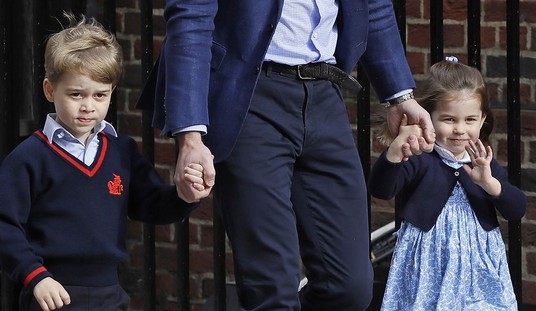Lawmakers returned to Capitol Hill on Monday with a terror suspect in custody and a slew of questions that promised to overwhelm anything else on the packed congressional agenda.
Did the FBI drop the ball on Tamerlan Tsarnaev and is this indicative of systematic flaws in the national security net? Is there a wider threat on the horizon — a question confirmed by the day’s arrest of al-Qaeda-linked suspects by Canadian authorities in a train-bombing plot — and is the security apparatus there to stop it? Is the fact that the Tsarnaev brothers immigrated to this country going to put the brakes on a massive immigration reform bill unveiled in in the heat of the manhunt?
And — a question security hawks got out in front of quickly over the weekend — will Dzhokhar Tsarnaev be tried as an enemy combatant to allow investigators to mine him for intelligence?
The White House quickly answered that one.
“He will not be treated as an enemy combatant,” press secretary Jay Carney said at today’s briefing. “We will prosecute this terrorist through our civilian system of justice. Under U.S. law, United States citizens cannot be tried in military commissions. And it is important to remember that since 9/11, we have used the federal court system to convict and incarcerate hundreds of terrorists.”
“The effective use of the criminal justice system has resulted in the interrogation, conviction and detention of both U.S. citizens and noncitizens for acts of terrorism committed inside the United States and around the world,” he continued.
But that missed the point security-minded Republicans were trying to make.
“The White House’s announcement today that Boston bombing suspect Dzhokhar Tsarnaev will be tried in a federal court, not by military commission, is correct and consistent with provisions in the National Defense Authorization Act,” said House Armed Services Committee Chairman Buck McKeon (R-Calif.). “However, it seems premature to declare that we will not treat Tsarnaev as an enemy combatant since we do not know enough about his affiliations. As an American citizen, he would be tried in federal court regardless of his status as an enemy combatant.”
McKeon said the venue for trying Tsarnaev was far from the most pressing question on President Obama’s plate.
“What is vital in the time ahead is the suspected terrorist associated with last week’s horrific bombings is interrogated fully – with a focus not on some future civilian trial, but on gathering intelligence to prevent future attacks. Congress debated these issues exhaustively in the last defense bill and arrived at a commonsense consensus designed to deal with precisely this circumstance,” he said.
“Clearly American citizens must be tried in civilian courts, but the same citizen, having viciously attacked his countrymen, must be exploited for his intelligence value before any trial begins.”
Sen. Lindsey Graham (R-S.C.) called a news conference to “strongly disagree” with the “premature” decision of the administration.
“It is impossible for us to gather the evidence in just a few days to determine whether or not this individual should be held for questioning under the law of war,” said Graham, a longtime military lawyer and colonel in the Air Force Reserves.
The senator stressed he doesn’t disagree with trying Tsarnaev in federal court even as Carney was basing the administration’s argument on their track record of adjudicating terrorists.
“Here’s my concern,” Graham said. “As a lawyer for over 30 years, civilian and military, I strongly support the concept that no criminal defendant should be required to incriminate themself while they’re in custody of their government. …Every nation at war should have the ability to defend themselves by gathering intelligence. These are not mutually exclusive concepts. I believe our nation is at war. The enemy is radical Islam, defined as the Taliban, Al Qaida, and affiliated groups. The question I have, regarding this case, is there any association between these two individuals and the groups I just named to allow enemy combatant status to be conferred upon the suspect in Boston. What is the difference?”
“A first-year law student could prosecute this case. What I’m worried about is what does this individual know about future attacks or terrorist organizations that may be in our midst? We have the right to gather intelligence. Under the criminal system, you should not question someone without their lawyer present,” Graham continued. “Under the Law of Armed Conflict, when you’re trying to gather intelligence about future attacks against your nation, there is no requirement for a lawyer. It would disturb me greatly if this administration is relying exclusively on the criminal justice system to gather intelligence.”
In a Hill battle of the lawyers, Harvard law school grad Rep. Adam Schiff (D-Calif.) told MSNBC he doesn’t think there’s a constitutional basis for treating Tsarnaev as an enemy combatant.
“I understand that Senator Graham would like to prolong the interview and we all want to get as much information as we can, but there are real constitutional limits to what we can do and those limits, I think, apply in a situation of an American arrested for committing a heinous act like this on American soil,” Schiff said.
But he acknowledged that intelligence is needed out of this case.
“How did this plot come about? Was there foreign direction? Are there foreign players that are still involved in this? How did they get the materials? How did they organize this? Was this self-directed by these two, or was there foreign direction?” Schiff said. “…One of the key questions for the intelligence community is, what is the foreign connection here? What happened on that trip to Dagestan? Were things that we missed?”
News outlets reported today that officials said Tsarnaev, unable to speak yet writing answers to questions from his hospital bed, had confessed to being motivated by Islam but denied broader terror links.
House Armed Services Committee ranking member Adam Smith (D-Wash.) said he’s already satisfied that the criminal court system can reap whatever information Tsarnaev has to offer.
“At this point in time, there is no evidence that the suspect was connected with al Qaeda or its affiliates, while there is an abundance of evidence that suggests he committed both state and federal crimes. There is no basis for him to be held as an enemy combatant at this time,” Smith said.
“Our civilian law enforcement and courts have a proven track record of success in crimes related to terrorism, and I have full confidence in their abilities. It is also critical that the suspect be interrogated to gain information and intelligence,” he added. “We must ensure that we do all we can to understand the scope of the attacks and prevent a similar attack from happening again.”
Attorney General Eric Holder today announced that Tsarnaev, 19, was charged with using a weapon of mass destruction against persons and property and one count of malicious destruction of property by means of an explosive device resulting in death, charges that carries the possibility of the death penalty.
“We will hold those who are responsible for these heinous acts accountable to the fullest extent of the law,” Holder said.
As Tsarnaev faces his first hearing next month, the Hill faces an untold number of congressional hearings on the questions to arise from the Boston bombing.
“It is imperative that we protect the homeland. The desire of this enemy is to strike us in our own back yard. I do not wish America to be the battlefield, but it is. It is the choosing of our enemies to make our homeland the battlefield,” Graham said. “All I ask is that within our values and within our legal system we retain the right to defend ourselves.”









Join the conversation as a VIP Member